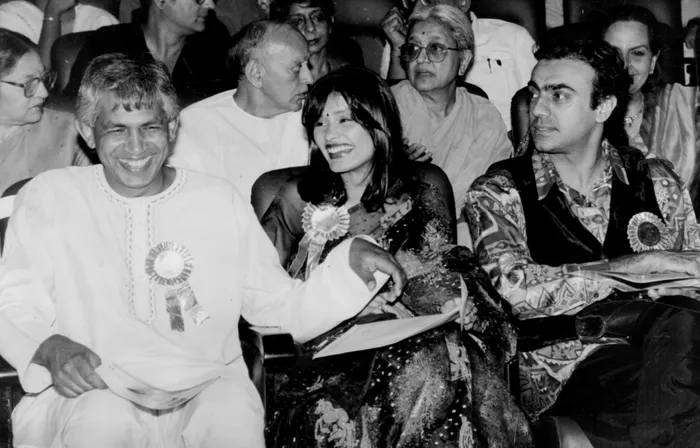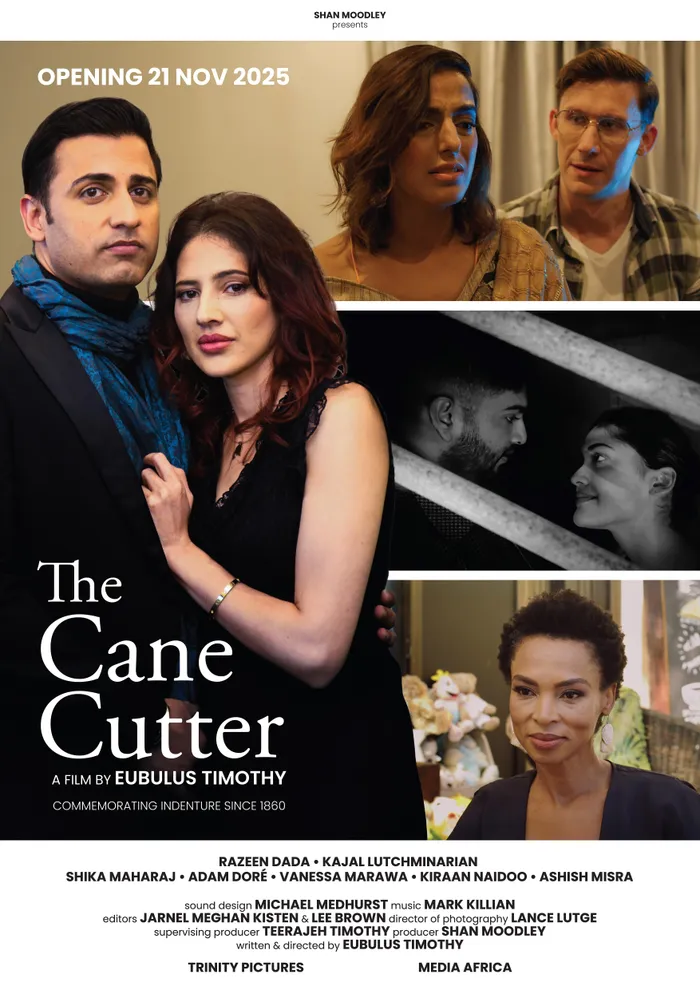
Shan Moodley
Image: Supplied
SHAN Moodley is not merely an artist. He is a custodian of memory, a sculptor of truth, and an innovator who has shaped South Africa’s cultural conscience across classrooms, studios, and screens.
From his early days as an art teacher and later as an inspector of art education at the young age of 29, Moodley nurtured generations of young minds, insisting that creativity was not a luxury but a necessity, especially in communities denied beauty by apartheid’s brutal architecture. His pedagogical style was rooted in dignity, discipline, and the belief that art could awaken civic imagination.
But it was in the realm of his real calling - as TV and film producer - that Shan Moodley’s genius and poetic pulse found fullest expression.
With an eye for nuance and a heart attuned to infotainment, as a producer at SABC-TV he crafted some of the finest television TV shows South Africa has ever seen, works that did not merely inform, but transformed. His quiet orchestration brought to life bold narratives such as Police File, Pop Shop, Prime Time, No Jacket Required and Take a Break.

Shan Moodley, left, was the co-producer with Anant Singh, of the movie Making of the Mahatrma. The movie, on Gandhi's time in South Africa, featured Pallavi Joshi (centre) and Rajiv Kapur and won many awards.
Image: Supplied
After he resigned from the SABC, he founded his own company, Prime Time International, producing television programmes for all three broadcasters, SABC, MNet and eTV. During this period emerged the award-winning Front Row and East Net (Mnet), E-Files (eTV) and the definitive documentary on the life of South African poet of the sixties, Ingrid Jonker.
In 1999, Shan was appointed the founding chairperson of the National Film and Video Foundation that put South Africa firmly on the international film map.
Recently, when not busy writing self-development books, rather than revisiting the familiar terrain of developing and overseeing television content, Moodley has turned his gaze toward a grander canvas: a feature film that commemorates 165 years of Indian presence in South Africa.
This cinematic tribute, The Cane Cutter, will honour the arrival of indentured labourers in 1860, the journey of passenger Indians, and the indelible contributions of a community that helped shape the moral and democratic fabric of the nation. Through Moodley’s vision, the story of South African Indians will be told, not as footnotes to history, but as protagonists of transformation.

The movie poster
Image: Supplied
Moodley said Cane Cutter followed an earlier documentary he produced on the 1860 Settlers. Rather than repeating the story of the early trials and tribulations and political persecution of Indians, he shifted focus to a feature film to highlight their contributions and achievements over 165 years.
“Using a layered narrative technique, a love story serves as a vessel through which the historical dimension of the passage of Indians in South Africa gently emerges. The factual narrative, embedded like a hidden seam within the emotional tapestry of the romance, is intended to educate young Indians on their heritage and to be proud of being Indian in a multi-cultural society,” said Moodley.
The story of The Cane Cutter begins in 1911 with a simple love story between two young Indians, a Telugu boy and a Gujarati girl aboard the SS Umlazi, the last ship carrying indentured and passenger Indians to Natal. Their love could not be consummated on the crowded ship.
The narrative then jumps 120 years, focusing on the descendants of these two young people, Devaram, a young filmmaker played by Razeen Dada, and Amisha, a medical doctor with a passion for Kathak dancing played by Kajal Lutchminarain. Their modern-day romantic story develops from where the tale of their ancestors left off.
”I wrote the main outline of The Cane Cutter, revealing reality through tenderness. The film embeds real-life testimony within the intimacy of a love story, honouring truth through emotion. I then collaborated with Eubulus Timothy, a long-time friend and fellow filmmaker, who wrote the screenplay and directed the movie,” said Moodley.
“The objective of the movie is to commemorate and create awareness of our immense contribution - from political activism to economic growth, we have been involved in just about every walk of South African life.
“Indian South Africans can be proud of their contribution to the new democratic South Africa and their South African citizenship,” he added.
* The Cane Cutter is set to release in theatres on November 21, marking 165 years since the arrival of the first Indian indentured labourers in Natal.
Related Topics: